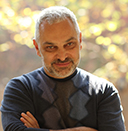A Quote by Andrew Solomon
No one much wants to be belittled, but we tolerate slurs surprisingly often for ourselves; for our lionised children, we demand freedom from insult.
Related Quotes
Freedom is always just one generation away from extinction. We don't pass it to our children in the bloodstream. We have to fight for it and protect it and then hand it to them, so that they shall do the same, or we're going to find ourselves spending our sunset years telling our children and our children's children, about a time in America, back in the day, when men and women were free.
Parenthood abruptly catapults us into a permanent relationship with a stranger, and the more alien the stranger, the stronger the whiff of negativity. We depend on the guarantee in our children's faces that we will not die. Children whose defining quality annihilates that fantasy of immortality are a particular insult; we must love them for themselves, and not for the best of ourselves in them, and that is a great deal harder to do. Loving our own children is an exercise for the imagination.
The classroom, with all its limitations, remains a location of possibility. In that field of possibility we have the opportunity to labor for freedom, to demand of ourselves and our comrades, an openness of mind and heart that allows us to face reality even as we collectively imagine ways to move beyond boundaries, to transgress. This is education as the practice of freedom.
We need to remember to teach our children that solitude can be a much-to-be-desired condition. Not only is it acceptable to be alone; at times it is positively to be wished for.....In the silence we listen to ourselves. Then we ask questions of ourselves. We describe ourselves to ourselves, and in the quietude we may even hear the voice of God.





































